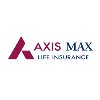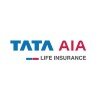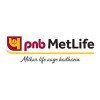


i
Gallagher
Work with us
![]()
Filter interviews by
Gallagher Process Associate Interview Questions and Answers
30 Interview questions
Insurance is a contract in which an individual or entity receives financial protection or reimbursement against losses from an insurance company.
Insurance is a form of risk management primarily used to hedge against the risk of a contingent or uncertain loss.
The insured pays a premium to the insurance company in exchange for coverage and protection.
Common types of insurance include health insurance, life insurance...
Premium is the amount paid for insurance coverage.
Premium is the cost of insurance coverage paid by the policyholder to the insurance company.
It is typically paid on a regular basis, such as monthly or annually.
The premium amount can vary based on factors like the type of insurance, coverage limits, and the insured individual's risk profile.
Higher premiums are often associated with more comprehensive coverage or h...
Insurance is a financial product that provides protection against financial losses.
Insurance is a contract between an individual or organization and an insurance company, where the insurer agrees to provide financial protection in case of specified events such as accidents, illnesses, or property damage.
There are different types of insurance such as life insurance, health insurance, auto insurance, and property in...
Insurance works by providing financial protection against potential risks and losses.
Insurance involves individuals or organizations paying premiums to an insurance company in exchange for coverage against specific risks.
When a covered event occurs, the insurance company compensates the policyholder for their losses.
Types of insurance include health, life, auto, home, and property insurance.
Insurance helps spread ...
There are generally accepted accounting principles (GAAP) that guide accounting practices.
Generally Accepted Accounting Principles (GAAP) are a set of accounting rules and standards used in the United States.
GAAP ensures consistency and transparency in financial reporting.
Examples of GAAP rules include the revenue recognition principle, matching principle, and historical cost principle.
Accounting concept refers to the basic principles and guidelines that govern the preparation and presentation of financial statements.
Accounting concepts provide a framework for recording, analyzing, and reporting financial transactions.
They ensure consistency and comparability in financial statements across different organizations.
Some common accounting concepts include the accrual concept, going concern concept,...
Depreciation is the decrease in value of an asset over time due to wear and tear, obsolescence, or other factors.
Depreciation is a method used in accounting to allocate the cost of an asset over its useful life.
It represents the reduction in the value of an asset on the balance sheet.
Depreciation can be calculated using various methods such as straight-line, declining balance, or units of production.
For example, a...
Reconciliation is the process of comparing two sets of records to ensure their accuracy and consistency.
Reconciliation involves comparing and matching data from different sources or systems.
It is commonly used in financial accounting to ensure that the balances in different accounts are in agreement.
Reconciliation can also be done for bank statements, invoices, inventory records, etc.
The process typically involves...
Yes, I am flexible in any shift timings.
I am open to working in different shifts, including night shifts.
I understand the importance of being adaptable and available for work at different times.
I have previous experience working in shifts and have successfully adjusted my schedule accordingly.
I prioritize the needs of the job and am willing to make necessary adjustments to accommodate different shift timings.
Insurance is a financial product that provides protection against potential financial losses.
Insurance is a contract between an individual or organization and an insurance company.
The individual or organization pays a premium in exchange for coverage against specific risks.
Types of insurance include health, life, auto, home, and property insurance.
Insurance helps mitigate financial risks and provides peace of mind...
Gallagher Process Associate Interview Experiences
67 interviews found
I applied via Walk-in and was interviewed in Oct 2024. There were 3 interview rounds.
Effortless and smooth
Logical reasoning section was time consuming, other sections were good to clear
(3 Questions)
- Q1. Tell me about yourself
- Ans.
I am a detail-oriented individual with strong analytical skills and a passion for process improvement.
Graduated with a degree in Business Administration
Previous experience in data analysis and process optimization
Proficient in Microsoft Excel and other data analysis tools
- Q2. Why choose Gallagher
- Ans.
Gallagher stands out for its commitment to innovation, employee development, and a collaborative work culture.
Innovative Solutions: Gallagher is known for its cutting-edge technology in risk management and insurance.
Employee Development: The company invests in training programs, ensuring employees grow in their careers.
Collaborative Culture: Gallagher fosters teamwork, allowing employees to share ideas and work togethe...
- Q3. Tell me about your previous job or internship experience.
- Ans.
I interned at a logistics firm, managing data entry and process optimization to enhance operational efficiency.
Handled data entry tasks, ensuring accuracy and timeliness in processing orders.
Assisted in streamlining workflows, which reduced processing time by 15%.
Collaborated with team members to identify bottlenecks and propose solutions.
Participated in weekly meetings to discuss progress and share insights.
Interview Preparation Tips
I appeared for an interview in May 2025, where I was asked the following questions.
- Q1. Introduction of yourself
- Ans.
Detail-oriented Process Associate with a passion for optimizing workflows and enhancing team productivity through effective communication.
Background in business administration, focusing on process improvement.
Experience in data analysis, helping to streamline operations by 20%.
Strong communication skills, facilitating collaboration across departments.
Proficient in various software tools, including Excel and CRM systems...
- Q2. Salary expectations
Interview Preparation Tips
I appeared for an interview in Dec 2024.
It's about our self intro
It contains 4 phases - Total 90 marks - 70 minutes duration
1. English grammer - 30 marks
2. Logical reasoning - 20 marks
3. Insurance - 20 marks
4. Accounting - 20 marks
(1 Question)
- Q1. They asked about job role related questions and about previous work experience .
I applied via Walk-in and was interviewed in Mar 2024. There were 4 interview rounds.
You can choose your own topic
English grammer
logical reasoning
(4 Questions)
- Q1. What is accounts payable and recevaible
- Ans.
Accounts payable is money owed by a company to its suppliers, while accounts receivable is money owed to a company by its customers.
Accounts payable refers to the money a company owes to its suppliers for goods or services purchased on credit.
Accounts receivable refers to the money owed to a company by its customers for goods or services provided on credit.
Accounts payable is a liability on the company's balance sheet,...
- Q2. Resume based q&a
- Q3. Depreciation and its types
- Ans.
Depreciation is the allocation of the cost of an asset over its useful life. Types include straight-line, double declining balance, and units of production.
Depreciation is a method of allocating the cost of an asset over its useful life
Straight-line depreciation evenly spreads the cost over the useful life of the asset
Double declining balance method accelerates depreciation in the early years of an asset's life
Units of...
- Q4. Journal entries
(3 Questions)
- Q1. Same Q&a as hr resume based questions S&W
- Q2. DEPRECIATION AMMORTIATION JOURNAL ENTRIES WHAT IS TRADING AC
- Ans.
Trading account is a financial statement that shows the results of buying and selling goods and services.
Trading account is a part of the final accounts of a business.
It shows the gross profit or loss made by the business through trading activities.
It includes details of sales, purchases, direct expenses, and direct incomes.
The formula for calculating gross profit is: Gross Profit = Net Sales - Cost of Goods Sold.
- Q3. BASIC ACCOUNTING Q&A
Interview Preparation Tips
(2 Questions)
- Q1. General accounts and communication
- Q2. Introduction and Excel
(2 Questions)
- Q1. General accounts and process explain
- Ans.
General accounts refer to the financial records of a company, while process involves the systematic steps taken to complete a task.
General accounts involve recording financial transactions, preparing financial statements, and analyzing financial data.
Process refers to the series of steps or actions taken to achieve a specific goal or outcome.
In accounting, the process may involve recording transactions, reconciling acc...
- Q2. . communication skills tested and
Accounts insurance reasoning questions
(1 Question)
- Q1. Asking accounting and insurance questions
(2 Questions)
- Q1. Basic insurance related questions
- Q2. What is insurance? Types of insurance? Explain 2 types of insurance?
- Ans.
Insurance is a contract between an individual and an insurance company where the individual pays premiums in exchange for financial protection against potential losses.
Types of insurance include life insurance, health insurance, auto insurance, home insurance, and more.
Life insurance provides a lump sum payment to beneficiaries upon the insured's death.
Health insurance covers medical expenses and can include services l...
(1 Question)
- Q1. Questions from resume and general questions
I applied via Referral and was interviewed in Feb 2024. There were 3 interview rounds.
Questions are about insurance accounting and English grammar easy
(5 Questions)
- Q1. Basic insurance and accounting related questions and communication should be good be confident.
- Q2. What is Insurance
- Ans.
Insurance is a financial product that provides protection against financial losses resulting from unexpected events.
Insurance is a contract between an individual or organization and an insurance company.
The individual or organization pays a premium in exchange for coverage against specified risks.
Types of insurance include health, life, auto, home, and property insurance.
Insurance helps mitigate financial risks and pro...
- Q3. What is Marine Insurance
- Ans.
Marine insurance is a type of insurance that covers the loss or damage of ships, cargo, terminals, and any transport by which the property is transferred.
Provides coverage for ships, cargo, terminals, and transport
Covers risks such as damage, loss, theft, and liability
Common types include hull insurance, cargo insurance, and liability insurance
Important for businesses involved in international trade
- Q4. What is premium
- Ans.
Premium is the amount paid for insurance coverage.
Premium is the cost of insurance coverage paid by the policyholder to the insurance company.
It is typically paid on a regular basis, such as monthly or annually.
The premium amount can vary based on factors like the type of insurance, coverage limits, and the insured individual's risk profile.
Higher premiums are often associated with more comprehensive coverage or higher...
- Q5. About gallagher
(1 Question)
- Q1. About comapany communication self intro
Interview Preparation Tips
I applied via Referral and was interviewed in Dec 2023. There were 4 interview rounds.
Gives one topic for checking your communication and confidence.
Logical reasoning and other process releted questions.
(2 Questions)
- Q1. Process releted questions
- Q2. Insurance, types, brokerage, mortgage,process, other non technical questions.
(1 Question)
- Q1. Technical round manager asks about company background, history, insurance terms policies and other questions for cheak your logical ability.
Interview Preparation Tips
- Insurance
- broker
- Agent
1. Customize Applications - Tailor your resume and cover letter for each job.
2. Network Actively - Connect with industry professionals and attend relevant events.
3. Prepare for Interviews -Research the company and role, and practice common questions.
4. Enhance Online Presence -Update LinkedIn and consider a personal website.
5. Learn Continuously - Take courses to develop new skills relevant to your field.
I applied via Walk-in and was interviewed in Jan 2024. There were 4 interview rounds.
Question were asked regarding fna
Consolidated question on english acs etc
(2 Questions)
- Q1. What are the golden rule for accounting
- Ans.
The golden rules of accounting are basic principles that guide the process of recording financial transactions.
The golden rules include: Debit what comes in, Credit what goes out; Debit the receiver, Credit the giver; Debit expenses and losses, Credit income and gains.
For example, when a company receives cash from a customer, the cash account is debited (increased) and the accounts receivable account is credited (decre...
- Q2. What do you know about gallagher
- Ans.
Gallagher is a global insurance brokerage, risk management, and consulting firm.
Gallagher provides insurance brokerage, risk management, and consulting services.
The company was founded in 1927 and is headquartered in Rolling Meadows, Illinois.
Gallagher operates in over 150 countries and has a diverse range of clients across various industries.
(2 Questions)
- Q1. Why you want to work in this company
- Ans.
I am impressed by the company's reputation for innovation and commitment to employee growth.
Company's reputation for innovation
Commitment to employee growth
Opportunities for career advancement
- Q2. What if your parents do not support in future to work here
- Ans.
I would respectfully discuss my career goals with my parents and try to address any concerns they may have.
Communicate openly with parents about career aspirations
Address any concerns they may have
Seek their understanding and support
Consider seeking advice from a career counselor or mentor
Top trending discussions






Gallagher Interview FAQs
The duration of Gallagher Process Associate interview process can vary, but typically it takes about less than 2 weeks to complete.
Tell us how to improve this page.
Gallagher Interviews By Designations
- Gallagher Process Associate Interview Questions
- Gallagher Process Analyst Interview Questions
- Gallagher Analyst Interview Questions
- Gallagher Senior Process Analyst Interview Questions
- Gallagher Senior Associate Interview Questions
- Gallagher Associate Interview Questions
- Gallagher Accountant Interview Questions
- Gallagher Senior Analyst Interview Questions
- Show more
Interview Questions for Popular Designations
Overall Interview Experience Rating
based on 61 interview experiences
Difficulty level
Duration
Interview Questions from Similar Companies
Gallagher Process Associate Reviews and Ratings
based on 274 reviews
Rating in categories
|
Process Analyst
4k
salaries
| ₹2 L/yr - ₹5 L/yr |
|
Senior Process Analyst
1.9k
salaries
| ₹2.5 L/yr - ₹10 L/yr |
|
Process Associate
1.3k
salaries
| ₹1.1 L/yr - ₹6 L/yr |
|
Processing Executive
551
salaries
| ₹1.5 L/yr - ₹4 L/yr |
|
Analyst
338
salaries
| ₹2 L/yr - ₹8 L/yr |

HDFC Life

ICICI Prudential Life Insurance

Axis Max Life Insurance

Bajaj Allianz Life Insurance
- Home >
- Interviews >
- Gallagher Interview Questions












